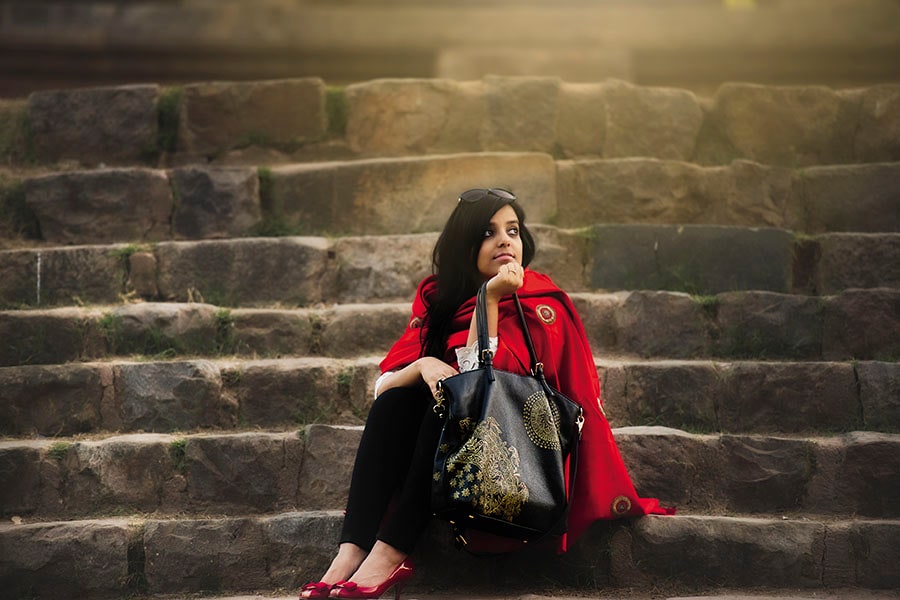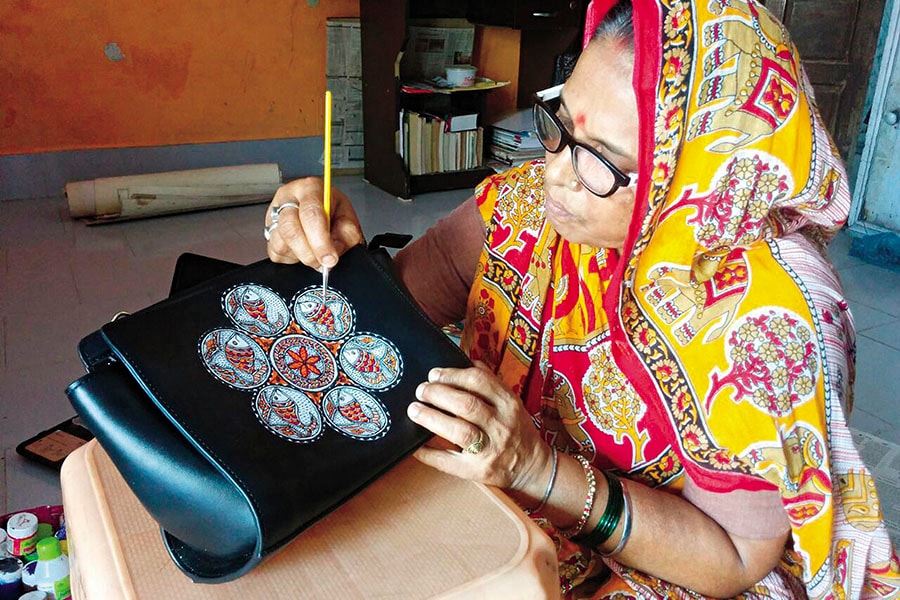
Meraki: Taking Indian folk art global with its bags
An Indian-expat businesswoman in Hong Kong veers from a career in ecommerce to making colourful purses

Yosha Gupta’s life came full circle when she founded Meraki, her luxury handbag company. Gupta, 35, grew up watching her mother create art using lumps of charcoal, as charcoal drawing pencils weren’t available in Aligarh, Uttar Pradesh, where they lived. Her mother’s talent inspired a lifelong love of art in Gupta, though her own career path led her to found LafaLafa, an online cashback and coupon business based in India. But she became a patron of Indian folk artists, collecting their work and helping bring Indian performers abroad after she moved to Hong Kong. Gupta even commissioned Indian artists to embellish her personal stash of designer handbags with folk paintings, unwittingly planting the seeds of her next business.
One Gucci handbag drew attention from Gupta’s peers in Hong Kong, some of whom thought it was a limited-edition release from the world-renowned fashion house. Seeing an opportunity, she released a test line of 40 hand-painted bags, which sold out in weeks. For the initial line, Gupta commissioned artists to paint existing leather bags so she could test which styles and types of leather looked best with the artwork and which designs customers preferred.
After that initial success, Meraki launched in late 2016 with Gupta at the helm. Her mother joined to assist with designing the brand’s collections and coordinating the more-than-50 artists with whom Meraki now works, giving her a later-in-life opportunity to build a career around her love of art. The average bag costs $250 to $350, wallets $150. Gupta estimates that the company has sold 100 to 120 bags since it became operational, earning revenue of $35,000 to $40,000 in its first six months.

Gupta says part of Meraki’s mission is to financially elevate these artists while bringing Indian folk art to a broader audience. “I am very happy working with Meraki because they are promoting my art, with my name and my art form,” says Ranjeet Kumar Jha, an artist from Madhubani village in Bihar. “When I sold out my first bag through Meraki, I became so happy that I can’t explain.”
Meraki is currently running a crowdfunding campaign through Next Chapter, a Hong Kong platform that caters to women entrepreneurs. The company has begun offering upcycling services—commissioning artists to improve on lightly worn designer bags that customers already own—in addition to selling its original bags. Meraki charges $150 to upcycle bags, but Gupta says it may introduce a tiered cost structure in the future based on the type of art the customer desires. Hong Kong is Meraki’s primary market, but Gupta plans to expand its reach into other countries. For her, Meraki isn’t simply a business. It’s a way to bring the art she loves to the world. “We don’t call customers ‘customers’—they’re patrons,” Gupta says. “They’re not buying just a bag. They’re actually buying a piece of art where there’s a history, there’s a story, and they’re the actual storytellers of our brand.”
(This story appears in the 30 November, -0001 issue of Forbes India. To visit our Archives, click here.)




